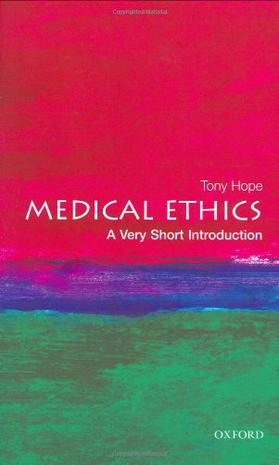-

Causation
Causation is the most fundamental connection in the universe. Without it, there would be no science or technology. There would be no moral responsibility either, as none of our thoughts would be connected with our actions and none of our actions with any consequences. Nor would we have a system of law because blame resides only in someone having caused injury or damage. Any intervention we make in the world around us is premised on there being causal connections that are, to a degree, predictable. It is causation that is at the basis of prediction and also explanation. This Very Short Introduction introduces the key theories of causation and also the surrounding debates and controversies. Do causes produce their effects by guaranteeing them? Do causes have to precede their effects? Can causation be reduced to the forces of physics? And are we right to think of causation as one single thing at all? -

Science and Religion
-

Schopenhauer
Schopenhauer is the most readable of German philosophers. This book gives a succinct explanation of his metaphysical system, concentrating on the original aspects of his thought, which inspired many artists and thinkers including Nietzsche, Wagner, Freud, and Wittgenstein. Schopenhauer's central notion is that of the will - a blind, irrational force that he uses to interpret both the human mind and the whole of nature. Seeing human behaviour as that of a natural organism governed by the will to life, Schopenhauer developed radical insights concerning the unconscious and sexuality which influenced both psychologists and philosophers. -

Medical Ethics
Issues in medical ethics are rarely out of the media and it is an area of ethics that has particular interest for the general public as well as the medical practitioner. This short and accessible introduction provides an invaluable tool with which to think about the ethical values that lie at the heart of medicine. Tony Hope deals with the thorny moral questions such as euthanasia and the morality of killing, and also explores political questions such as: how should health care resources be distributed fairly? Each chapter in this book considers a different issue: genetics, modern reproductive technologies, resource allocation, mental health, medical research, and discusses controversial questions such as: * Who should have access to reproductive technology? Who should pay? * Is it right to fund expensive drug treatment for individuals? * Should active euthanasia be legalized? * Should treatment for mental illness be imposed on patients without their consent? * Who should have access to information from genetic testing? * Should we require consent for the use of dead bodies or organs in medical research? -

Machiavelli
Niccolo Machiavelli taught that political leaders must be prepared to do evil that good may come of it, and his name has been a byword ever since for duplicity and immorality. Is his sinister reputation deserved? In answering this question Quentin Skinner focuses on three major works, "The Prince", "the Discourses", and "The History of Florence", and distils from them an introduction to Machiavelli's doctrines of exemplary clarity. -

Agnosticism
What is agnosticism? Is it just the 'don't know' position on God, or is there more to it than this? Is it a belief, or merely the absence of belief? Who were the first to call themselves 'agnostics'? These are just some of the questions that Robin Le Poidevin considers in this Very Short Introduction. He sets the philosophical case for agnosticism and explores it as a historical and cultural phenomenon. What emerges is a much more sophisticated, and much more interesting, attitude than a simple failure to either commit to, or reject, religious belief. Le Poidevin challenges some preconceptions and assumptions among both believers and non-atheists, and invites the reader to rethink their own position on the issues.